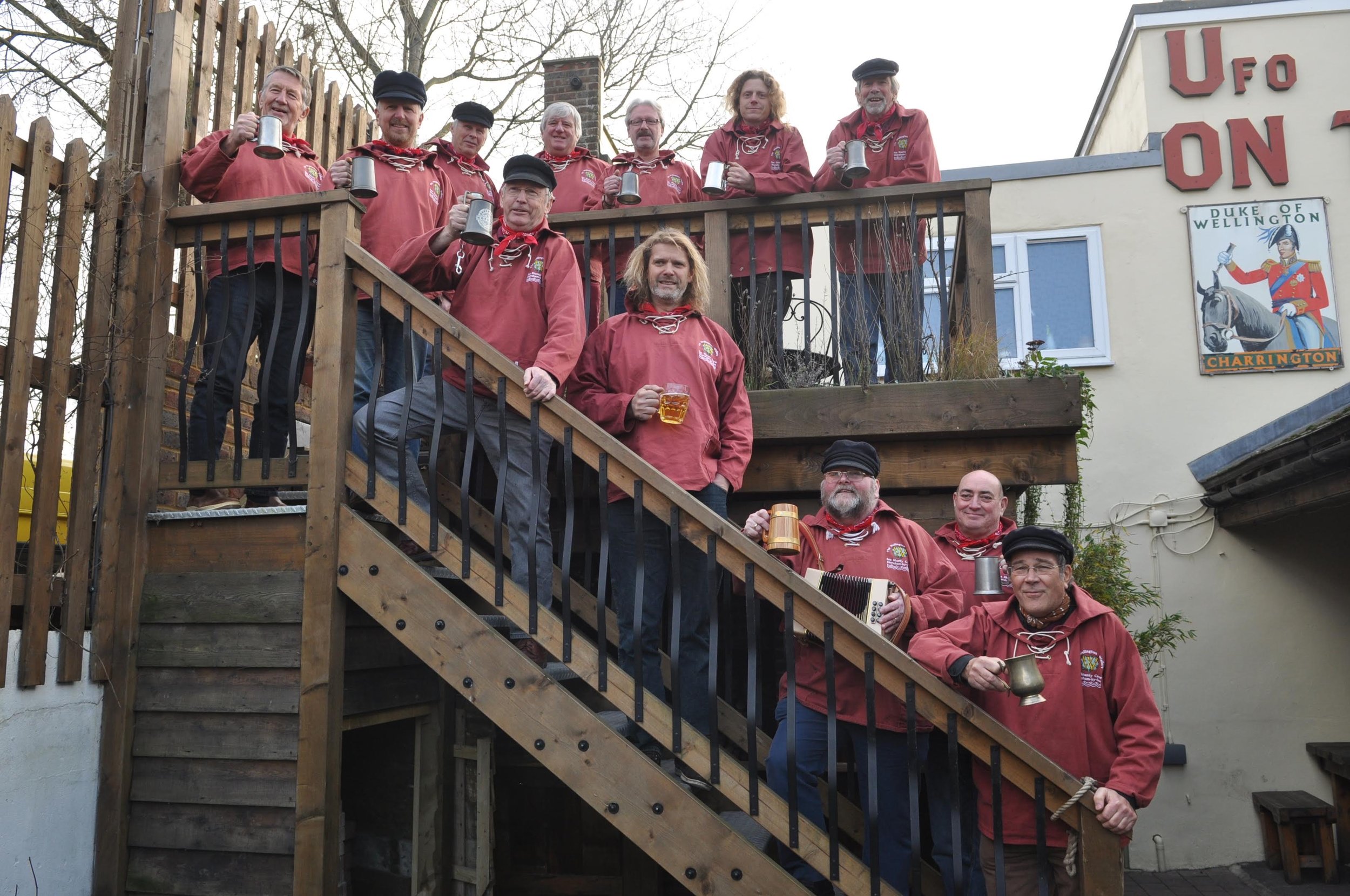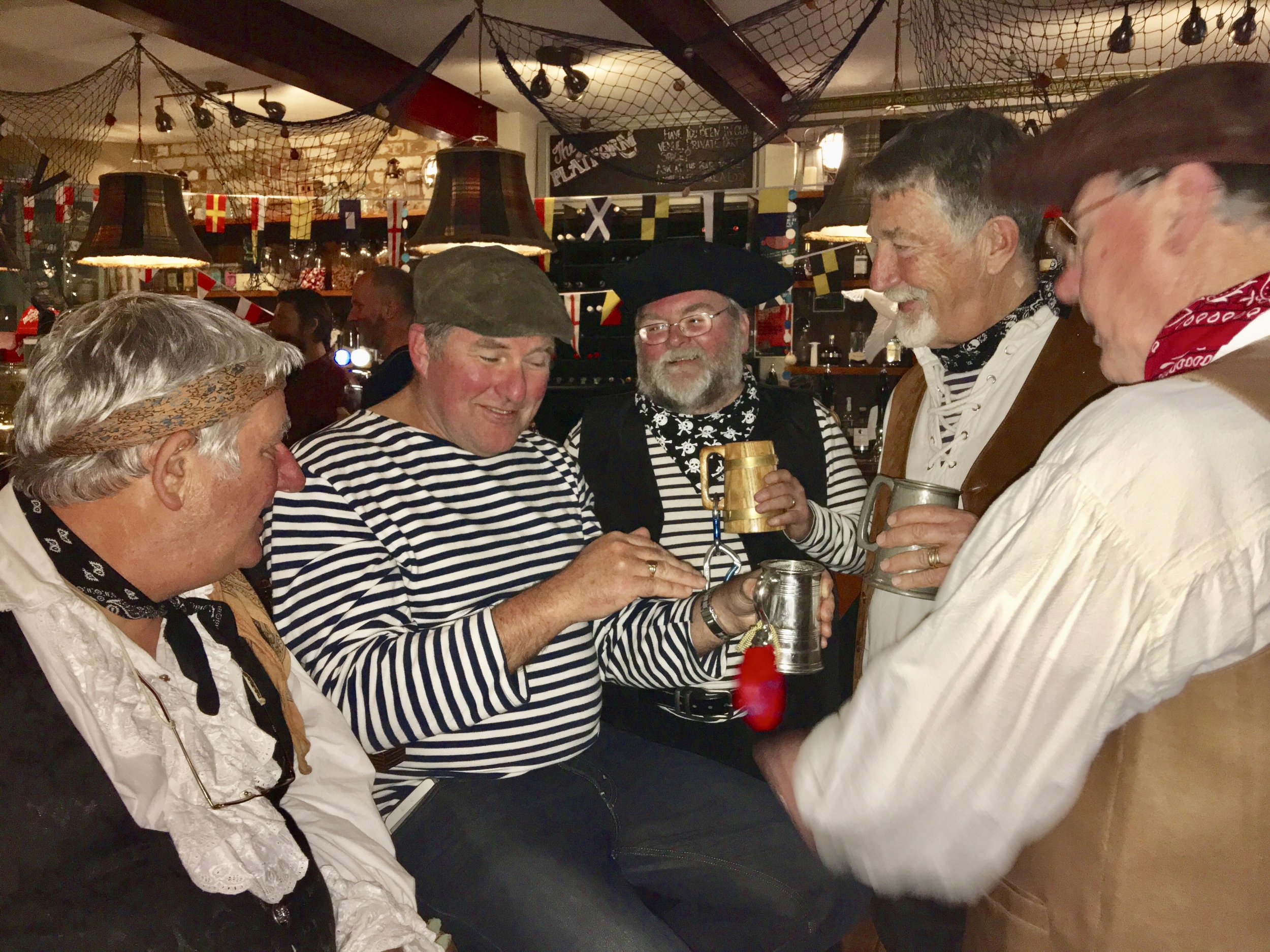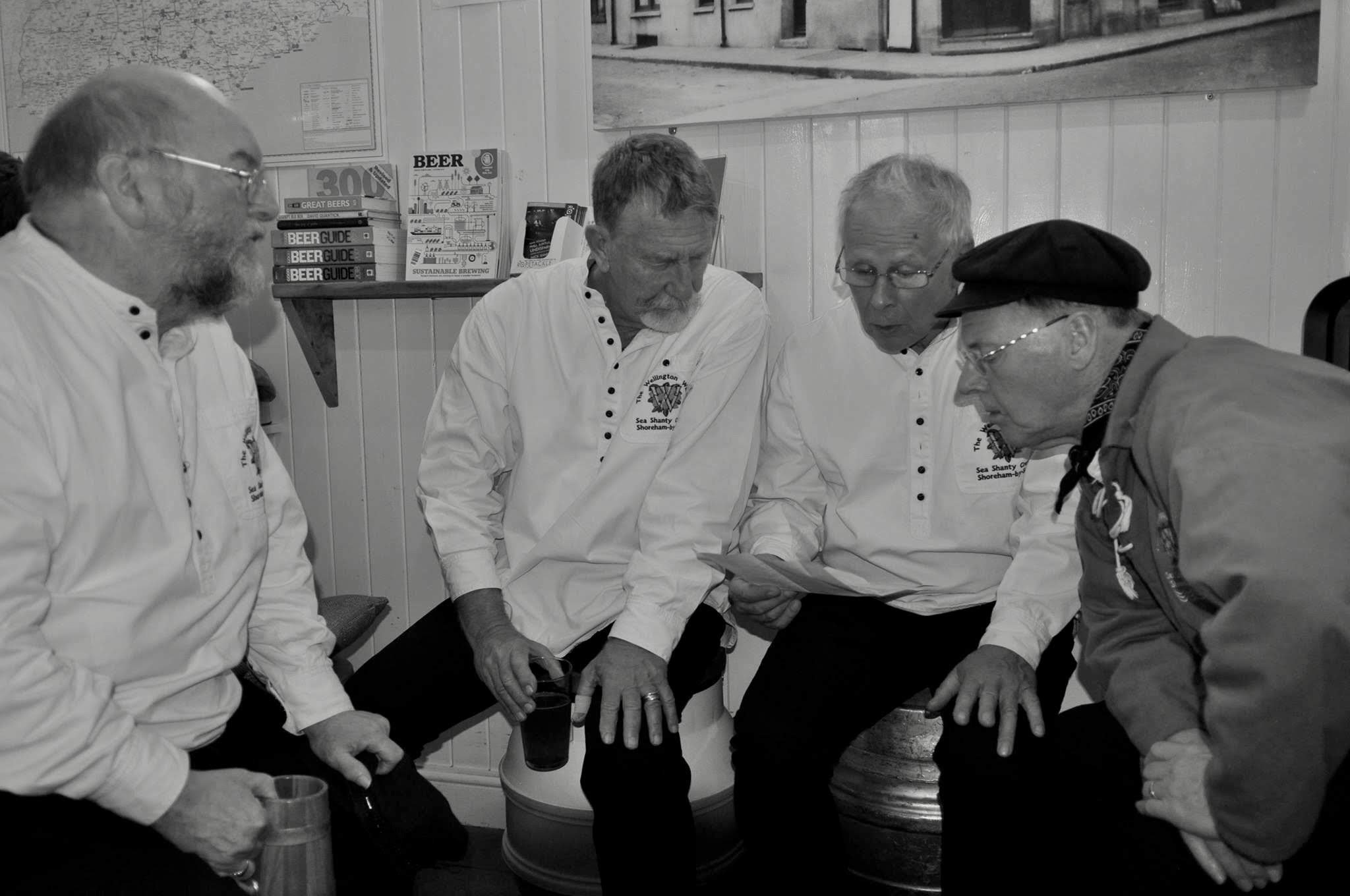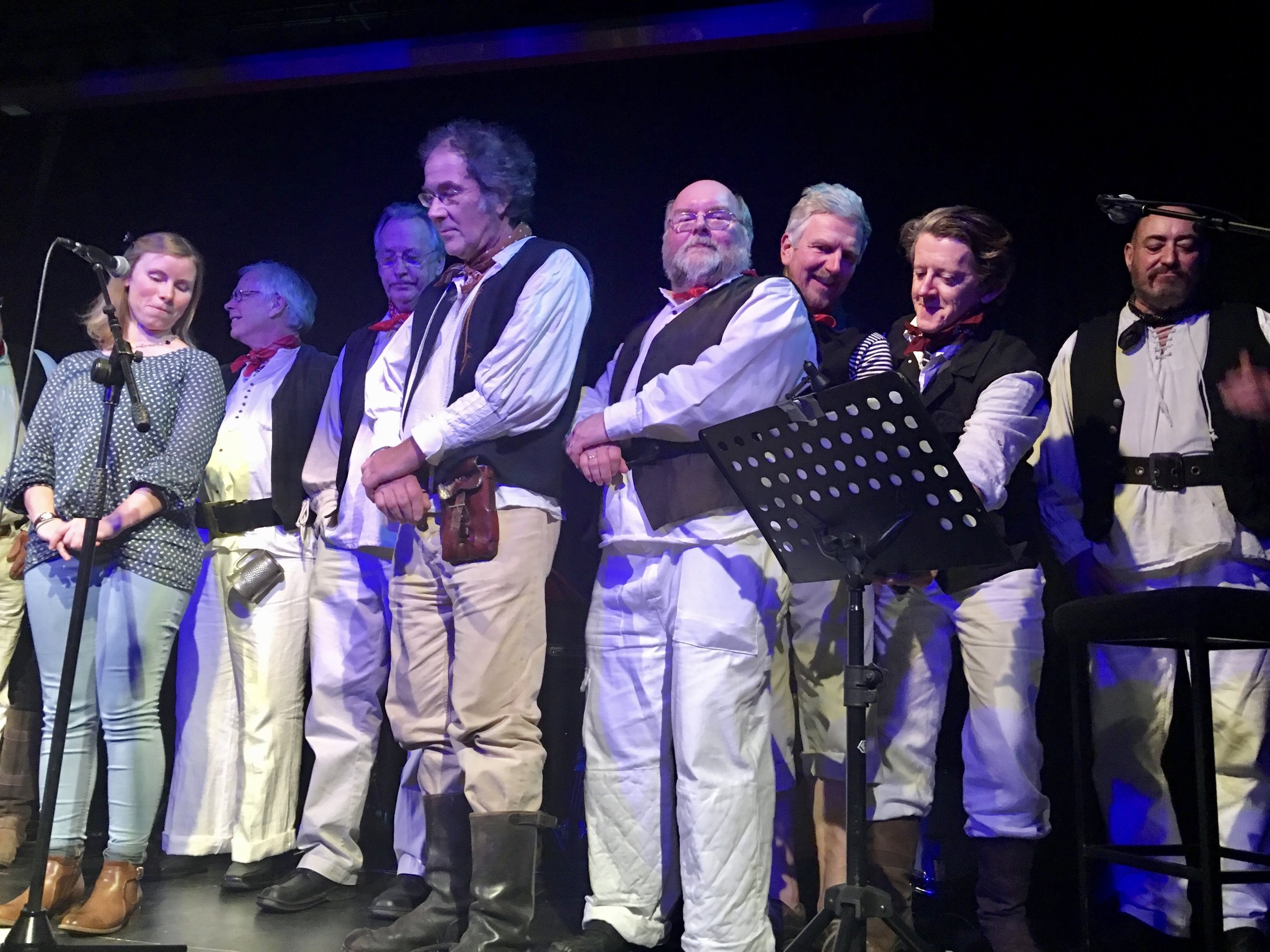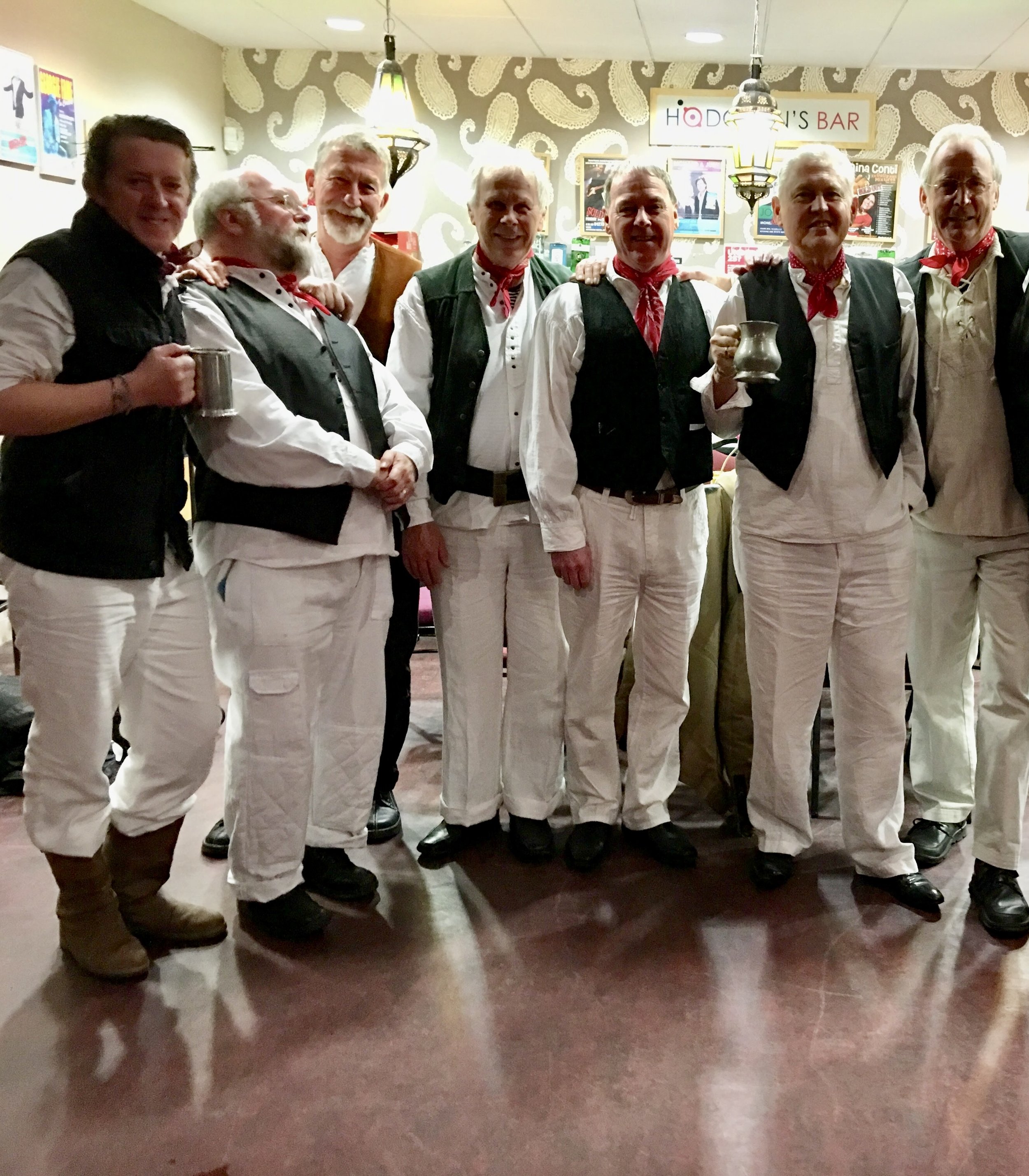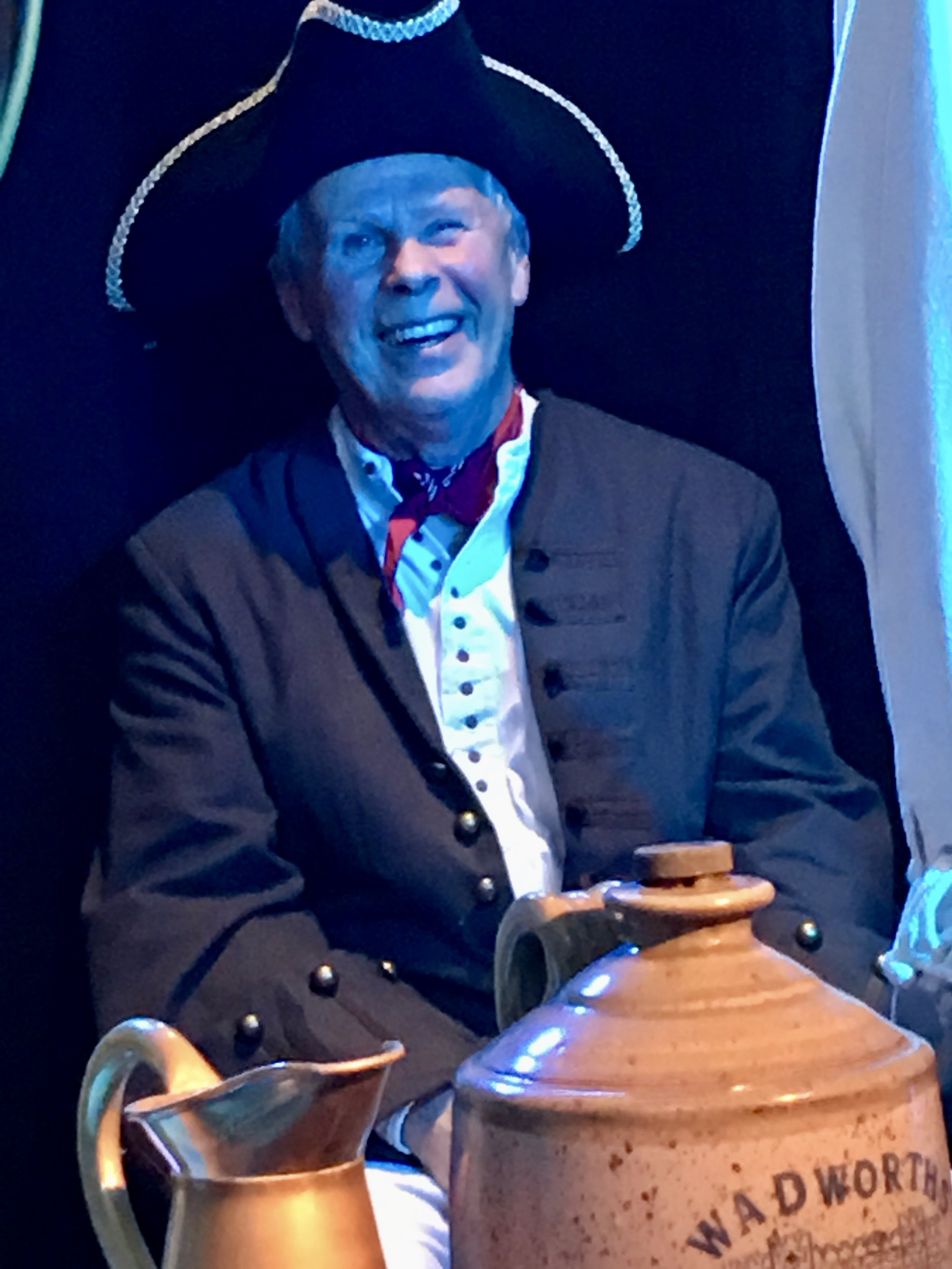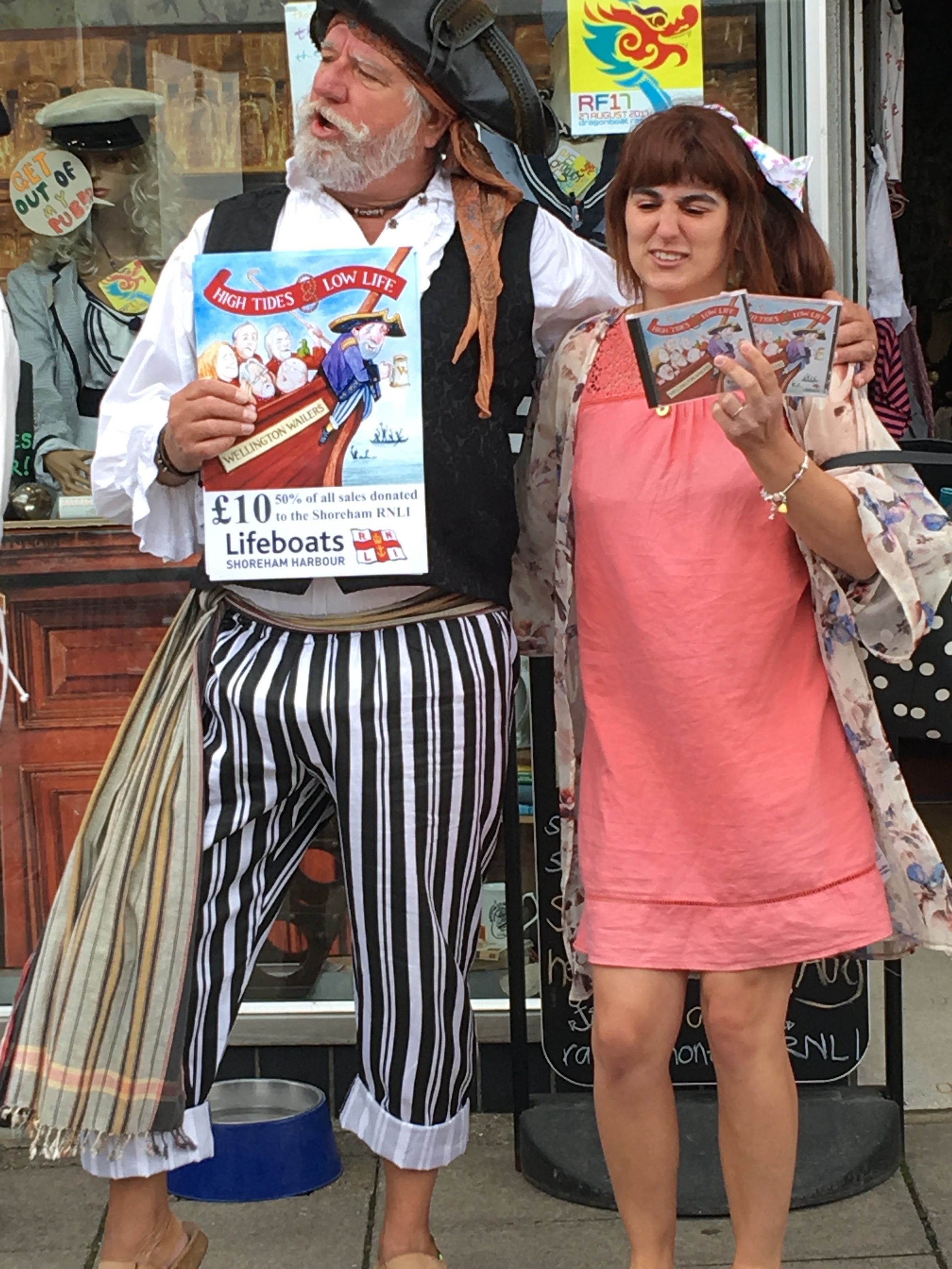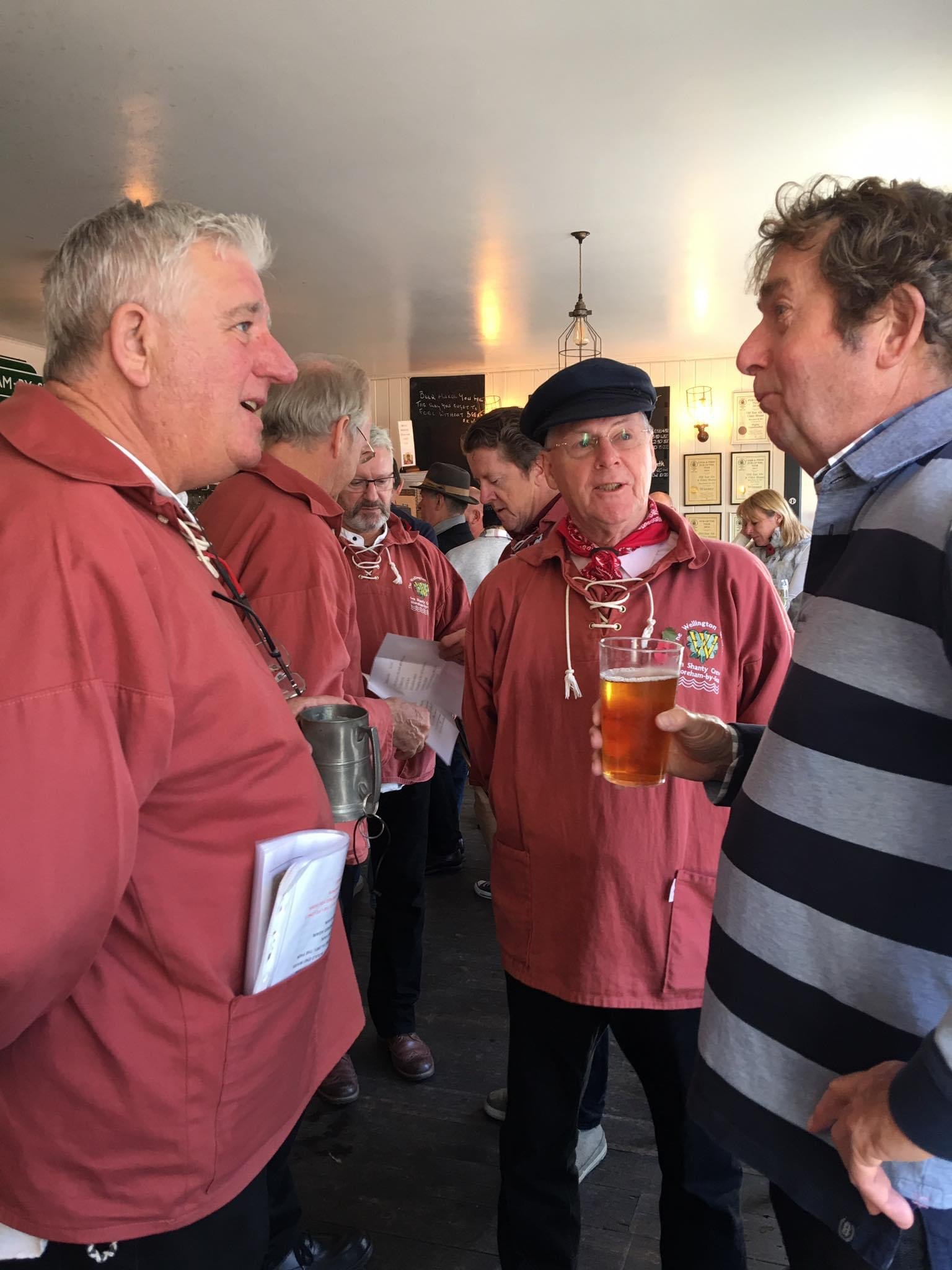HISTory
History of The Wellington Wailers
The Wellington Wailers started life in The Sussex Yacht club, Shoreham-by-Sea. A small group of like minded seadogs decided to resurrect the singing of traditional sea shanties. That was six years ago; since then our ship's company has expanded. When fully manned, we can now muster sixteen men.
We re-located to “The Duke of Wellington” pub, hence our choice of name. The move was agreed unanimously, once the crew learnt that we were to get free beer, for strutting our stuff, as a regular monthly slot. For the most part we still stick to singing the good old, crowd pleasing, rousing shanties, with emphasis on close harmony, but we also inject one or two more humorous songs, of a more piratical slant. We have performed locally at countless gigs, festivals, and charitable events, not forgetting our roots, where we entertain, at The Duke of Wellington's monthly shanty evening.
However the main event of the Wailers year has now become appearing at “The Falmouth International Sea Shanty Festival“. We were first invited to attend in 2014 and unanimously agreed that it was an event not to be missed and feel privileged that we are now regulars, on the guest list, appearing alongside of such artists as “Fishermans Friends” and “Kimbers Men”.
We have now made two CD’s 'High Tide and Low Life' in 2017 and “Welly Boots and Shanties” in 2020 Please to say they are both selling well. £5.00 of each CD sold goes to the RNLI, Shoreham Lifeboat
We have been featured on BBC Radio 2 'The Folk Show' with Mark Radlcliffe. We have also been heard on Radio stations as far away as New Zealand! We were also seen singing on BBC1 TV, whilst performing at Falmouth International Sea Shanty Festival. We have recently broacasted live on BBC Radio Sussex and Surrey from their Brighton Studio
History of the Sea Shanty
The true shanty was a work song to enable the men to “haul”-“stamp”-“heave” and by frequent repetition in choruses-raising a sail or hauling an anchor got the job done. But in the rare periods of time off duty the men would sit on the deck and sing of home-the women left behind or yet to meet! Many also discovered that it was a great way to complain about the Captain and Officers, the food and bad conditions without being punished or lashed “I wasn’t singing about this ship sir” was a favourite excuse.
“A good shantyman is worth ten pressed men” is a famous quote from Stan Hugill, both a working shantyman and a great collector of shanties. The following, by him, sums it up.
Imagine a square rigger on sailing day and the roar, from The Mate “Aaaall Hands”. The men, some of them the sweepings from the gutter, others seasoned deep water men, would tumble from their bunks, with fat heads and unsteady feet and climb the ladders to the fo’c’slehead. Here they would gather around the capstan. On the command, the capstan bars would be shipped in the scarlet pigeon holes; the bars would be breasted and with a shuffling gait the men would commence the long walk and heave around the trundle head. Until this moment The Mate would be in ignorance as to the seaman like qualities of the “crowd”. Seeing that they had been brought aboard by the boarding house masters, the evening before. Most, if not all, in various states of drunkenness. Looking up from his sidelong inspection of the anchor chain as the links slowly emerged from the river The Mate would cup his hands to his mouth and roar “Who’s the bloody nightingale among yer, are ye men or cawpsies ? If there’s a shanty man among yer fer gawds sake strike a light ” In answer to this challenge from the cavernous throat of some true son of Neptune comes the hurricane reply...
“ Oh say wuz you never dahn Ri-i-o Grande ?“
The refrain, a bit seedy at first, comes from half of the heaving men.
“ Wa-a-ay dahn Ri-o!”
The self imposed shantyman now gets into his stride.
“Where the water runs down golden sand!”
The sailormen, taking heart, bring in a fuller and beefier refrain.
“For we’re bound for The Ri-o Grande”.
A satisfied smile crosses the lips of The Mate. He’s got a good crowd; the shanty tells him that. “When the men sing right, the ship goes right” was the old sea adage.









